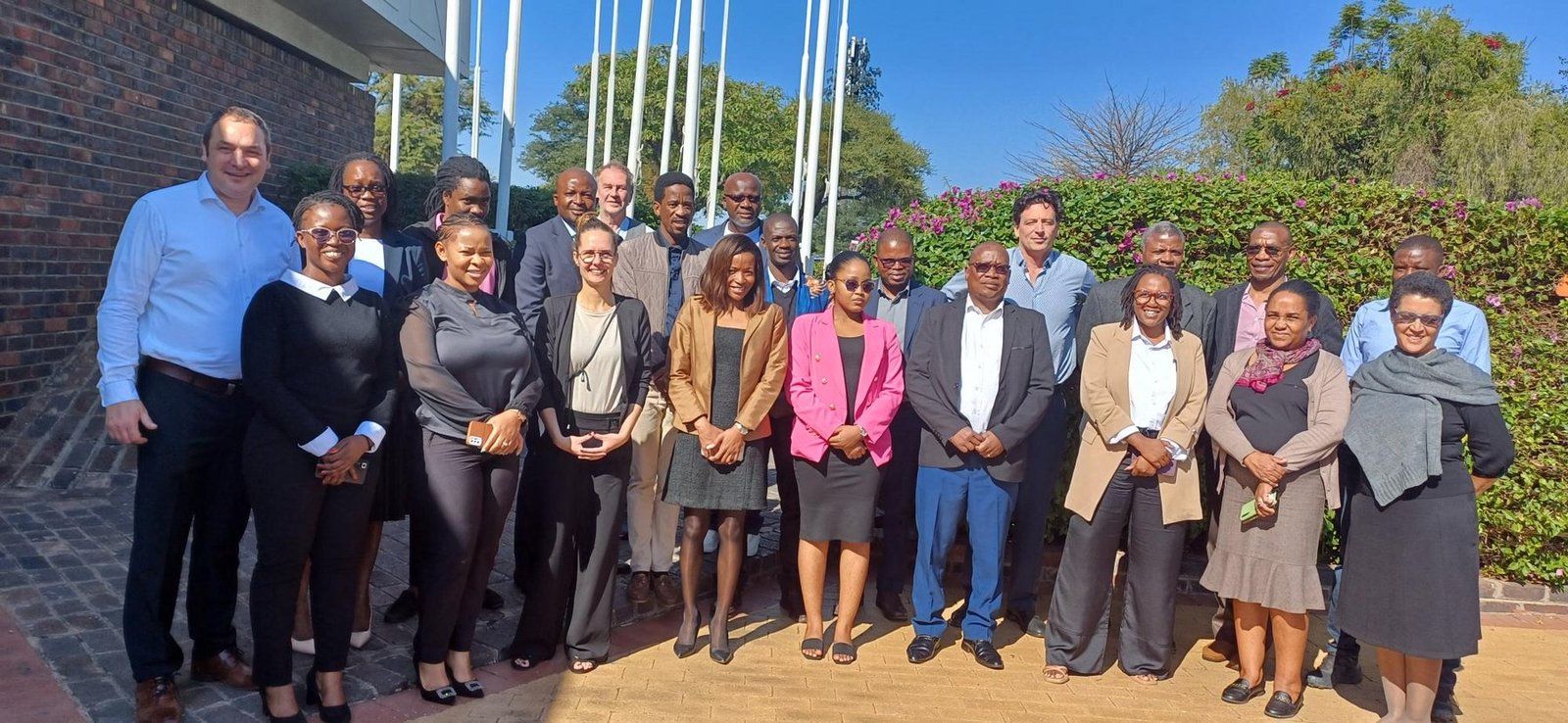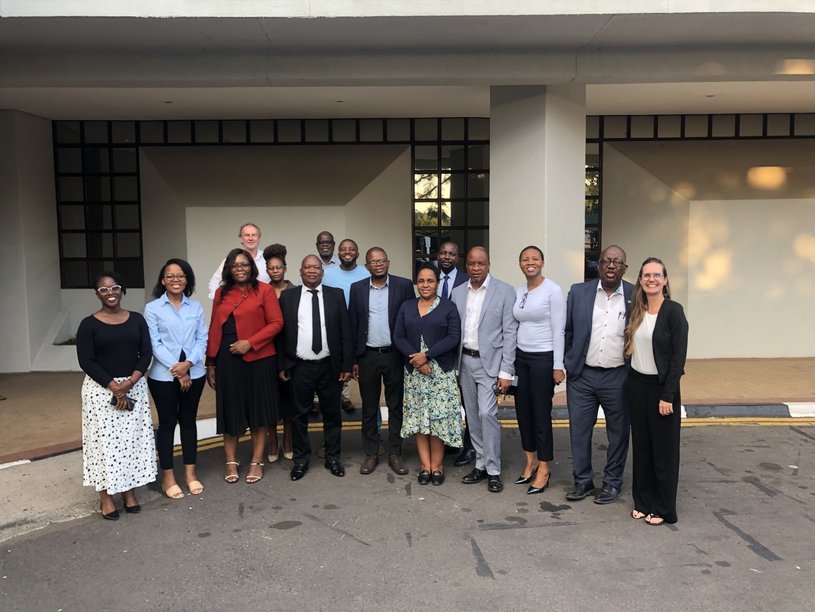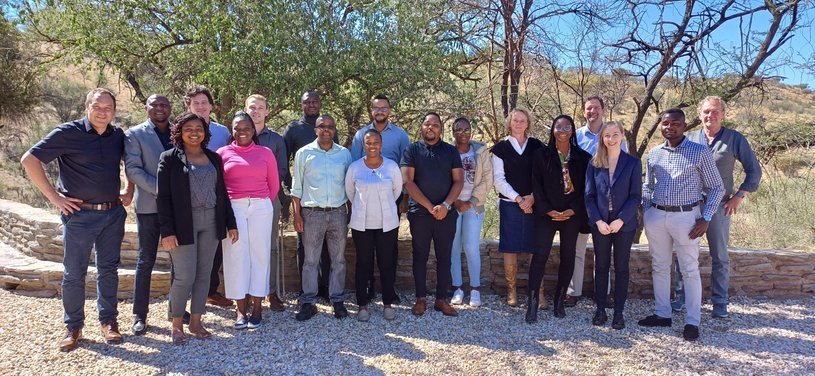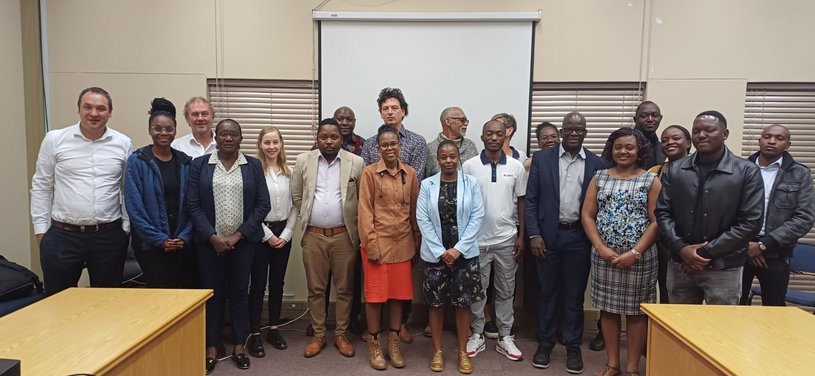Representatives of different ministries and departments of the Republic of Botswana and the Republic of Namibia in collaboration with the Cooling Program for Southern Africa (CooPSA) jointly with international experts recently concluded pivotal trainings and workshops. They aimed at getting ready for participating in international carbon markets. The trainings and workshops focused on key aspects concerning Article 6.2 of the Paris Agreement such as decision-making processes, share of proceeds, and registry provisions. Furthermore, they treated the discussion and validation of elaborated Mitigation Activity Design Documents (MADD) for national Green Cooling mitigation actions.
In Botswana, participants delved into the design of the Carbon Market Framework (CMF) underlined by international examples. These sessions provided an in-depth understanding of the necessary components for a robust framework, encouraging interactive discussions and engagement with proposed structures.
In Namibia, participants took an in-depth look at their Carbon Market Framework and at the national carbon project pipeline. They examined how to process project developments for this pipeline by scanning also international examples and the international development of carbon markets.
Taking steps towards Carbon Markets
Representatives of different ministries and departmentsof the Republic of Botswana and the Republic of Namibia in collaboration with the Cooling Program for Southern Africa (CooPSA) jointly with international experts recently concluded pivotal trainings and workshops. They aimed at getting ready for participating in international carbon markets. The trainings and workshops focused on key aspects concerning Article 6.2 of the Paris Agreement such as decision-making processes, share of proceeds, and registry provisions. Furthermore, they treated the discussion and validation of elaborated Mitigation Activity Design Documents (MADD) for national Green Cooling mitigation actions.In Botswana, participants delved into the design of the Carbon Market Framework (CMF) underlined by international examples. These sessions provided an in-depth understanding of the necessary components for a robust framework, encouraging interactive discussions and engagement with proposed structures.
In Namibia, participants took an in-depth look at their Carbon Market Framework and at the national carbon project pipeline. They examined how to process project developments for this pipeline by scanning also international examples and the international development of carbon markets.
The trainings and workshops featured practical sessions on assessing mitigation activities, covering evaluation processes at both the Mitigation Activity Identification Note (MAIN) and Mitigation Activity Design Documents (MADD) levels. Participants gained insights into establishing an Article 6 registry and into transitioning Voluntary Carbon Market projects to Article 6. In Botswana, hands-on exercises included developing an Article 6 project pipeline. How to deal with the transition of Voluntary Carbon Market (VCM) and Clean Development Mechanism (CDM) projects was also discussed as well as the possibilities how to address new VCM projects into the national Carbon Market strategies. Key outcomes included proposals on how to deal with the share of proceeds, fee structures, and governance responsibilities for the issuance and transfer of Internationally Transferred Mitigation Outcomes (ITMOs). These discussions were crucial for ensuring the operational effectiveness and sustainability of the framework and prepared the participants for the next milestone that was envisaged by the National Ad-Hoc Working Groups of Botswana and Namibia. Key stakeholders convened to assess and validate the draft MADD for Green Cooling mitigation activities using Article 6.2. culminating in a decision to move forward with the proposed measures.
By fostering collaboration and knowledge-sharing, the workshops successfully laid the foundation for sustainable and impactful carbon market frameworks in Botswana and Namibia and taking next steps on behalf of the proposed MADDs. This capacity-building initiative marks a significant step toward operationalizing Article 6 in Botswana and Namibia, as well as promoting Green Cooling solutions on behalf of Article 6.2 activities. The commitment demonstrated by all stakeholders reflects a shared vision for a greener, more resilient Southern Africa.
Source



